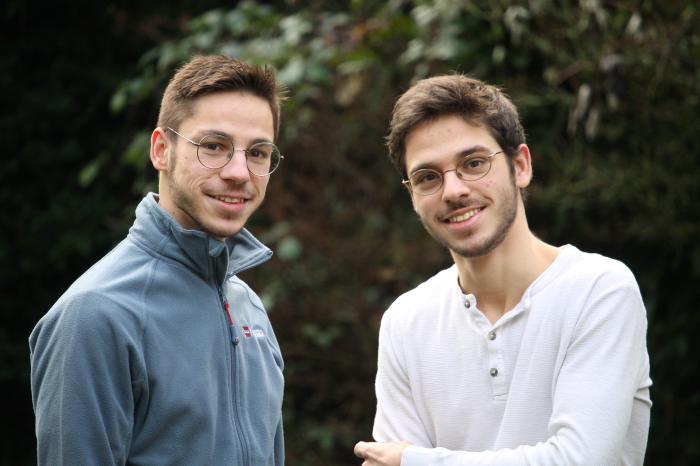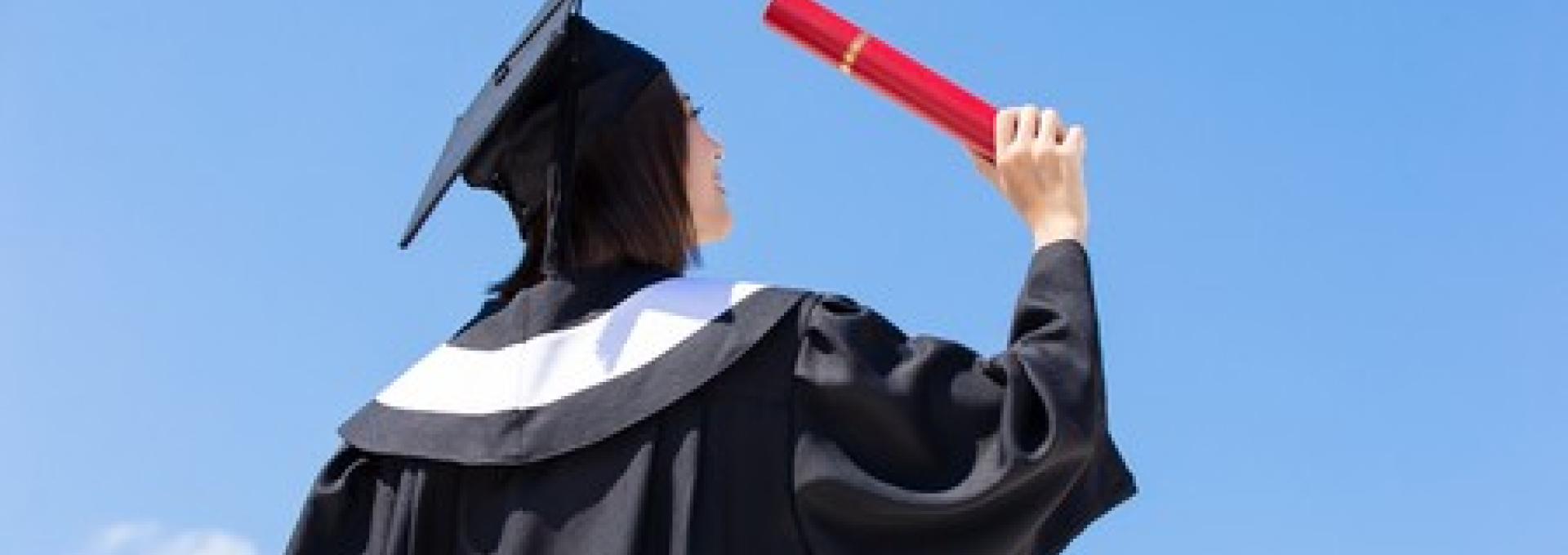What do the Bachelor of Science graduates do after the program? Let's find out!
Antonin and Louis-Maël are twins and both alumni of the Bachelor of Science! We wanted to know what it is like to study in the same program as your twin! And fun fact: their little brother is a current Bachelor student too who will graduate in 2023 😉

Could you please introduce yourselves?
Antonin: Hi! My name is Antonin and I’m French. However, I had the chance to grow up in Germany and learn German at a very young age! I entered the Bachelor of Science of École Polytechnique the year it was created, in 2017, and graduated in July of last year. I followed the mathematics and physics double major with a minor in biology. After l’X, I had the immense privilege of pursuing my studies at the University of Cambridge in the UK! I am doing their taught master’s degree in Physics (called MASt in Physics) which is only one year long.
Louis-Maël: My name is Louis-Maël. I am French, but I grew up in Düsseldorf, Germany where I attended the Lycée français de Düsseldorf before joining Ecole Polytechnique. I graduated from the Bachelor Program in 2020 in Maths & Economics. Currently I am doing an MSc in Economics for Development at the University of Oxford.
Did you take the decision to apply for the Bachelor of Science together?
Antonin: We heard about the Bachelor of Science from one of our professors. We were both very intrigued and interested about this new program. Going home, I remember looking on the program’s webpage for more information and telling myself: “that’s exactly what I’m looking for!” This was a week before the first round’s application deadline and
so we jumped on the opportunity and spent the next few days working on our application file. We didn’t have any expectation at the time, and we were so surprised and really glad to be first shortlisted for the oral interview and then both admitted to the program! The funny anecdote is that the admission committee realised we were from the same family (and in particular twins) only after admitting us! We never thought beforehand that we would end up studying in the same place but so it happened! It was exciting to continue our academic adventure together, especially in a newly created program!
Louis-Maël: Yes! This increased by two the chances that at least one of us would join the program ;-) We discovered the program at the same time and were very enthusiastic about it. The Bachelor of Science was at the very intersection of what we were looking for: an international program offered by a prestigious French institution. We did prepare the interview together and even had the oral examination one after the other! I think we also applied together because the Bachelor of Science appeared as a great way to study in the same prestigious university without necessarily following the same course paths: Antonin ended up doing a lot of Physics while I chose the Economics path.
With hindsight, how was it to study in the same program as his brother?
Antonin: For me, it was a real help to have my brother so close. We weren’t living in the same building nor were we in the same study groups, but I came very often to see him to ask questions or chat. He helped me with Mathematics and other subjects many a time, but most importantly, he helped me to stay motivated and give my best throughout the program!
Louis-Maël: It was amazing! For me it was great to know that my brother was going through the same things than I was, that we could really understand each other in what we were experiencing and also help one another. I would regularly discuss with him how I felt about the courses and share thoughts about course content I understood or had questions on. It was also thrilling to be part of the same adventure of participating in the first promotion of the program. With hindsight, being in the same program was also very beneficial academically speaking: we are very close to each other so we never experienced it as a competition but rather a way to motivate and boost one another.
Could you please tell us more about what you’re currently studying?
Antonin: I’m currently doing the MASt in Physics at the University of Cambridge. This program is only a yearlong and very intense. Among the many courses offered, I chose three for the first term: Biological Physics, Atomic and Optical Physics and Quantum Field Theory. On top of my courses, I also have to undertake a research project that spans over the whole duration of the program. My project is to measure the local temperature inside living cells using a nanodiamond quantum sensor and study how heat diffuses at the microscale inside them. I chose this project because it was at the intersection of biological physics and quantum physics. It is very experimental but also computational as I will have to develop a simulation of heat diffusion inside a cell. What I like in this program is that students are free to choose their courses according to their own interests and study goals. Moreover, the offered courses and projects range from highly theoretical physics to very experimental physics and there is therefore, something for every taste.
The Universities of Oxford and Cambridge are the oldest universities in the UK and have a huge legacy of culture and traditions. One aspect of the Universities we particularly appreciate is their system of Colleges. Each student is assigned to a College which is their living and social space. It creates an opportunity to meet many other students from very different disciplines and this is a richness second to none.
Louis-Maël: The MSc in Economics for Development is a one-year program at the University of Oxford (UK). It is offered jointly by the Economics Department and the Oxford Department of International Development and focuses on understanding the challenges faced by developing countries (debt sustainability, conflict, corruption, health & education to name but a few). Besides theoretical foundations, the program teaches the main technical tools required to work in development organisations such as the World Bank, the United Nations or the IMF for example. Throughout the year students are also required to work on a research project. I will be working on Nigeria and specifically, I will try to measure the economic impact of the big infrastructure projects that happened throughout the 1980s when the capital city moved from Lagos to Abuja.
Stay tuned to know more about Antonin and Louis-Maël’s stories!
